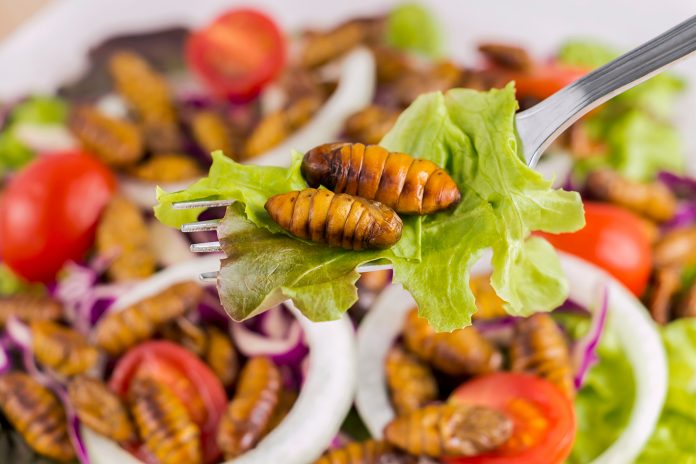Nothing is off the table when it comes to feeding the world’s population, says UNSW, which is estimated to be 10 billion people in 2050.
Professor Johannes le Coutre, a food and health expert from UNSW Sydney’s School of Chemical Engineering, says the most pressing challenge will be how to sustainably ramp up calorie production by 70% without overwhelming the planet.
“I believe we will still be eating meat in 30 years’ time, although less of the meat being consumed will come from livestock,” he says.
“There are simply not enough cows on this planet to meet the projected food production demands and we can’t ignore the looming environmental challenges posed by the agriculture and the food industry.
“We’re going to need to change what we eat and how we grow it over the next two decades so we can diversify our sources of protein.”
Insects
Mr le Coutre points to insects, saying they are very similar to shrimps, “which is a crustacean species and both crustaceans and insects are arthropods”.
“Arthropods are basically lifeforms either on land or water that are surrounded by a chitin exoskeleton. Most people won’t cringe at the sight of a shrimp on their plate, but many might run if there was an insect crawling on the kitchen counter,” he says.
“Of course, not every insect is edible. There won’t be any wasps or bees on the menu in 30 years, but you can bet there will be crickets, moths and beetles.
“And the movement has already begun here in Australia. Once we get over the yuck factor, I believe the conversations around consuming insects as a source of food can be approachable emotionally.”
Lab-grown meat
Another area of diversification is expected to be the use of cultured meat, or lab-grown meat, which Mr le Coutre says will be more accessible in 30 years’ time.
“While we’re making progress in this space, further research is needed to ensure lab-produced meat satisfies consumer expectations and can be manufactured at a reasonable cost,” he says.
“As demand increases, shoppers can expect to see more of it, and I have no doubt we’ll be eating more foods produced through cellular agriculture.”
Genetically modified food
While the sale of fresh GM foods such as fruit or vegetables, meat or fish is currently banned in Australia and New Zealand, Mr le Coutre expects there is a role for them in our future food system.
He says the public perception of GMO foods has previously been notoriously negative, which he believes is a result of alarmist coverage by the media and a lack of understanding of food science.
“The idea of altering crops to require less water or better resist diseases or pests is not a new one, but it will play an important role if we want our future crops to be more resilient to climate change,” he says.
“We can alter the DNA of crops to require less energy and resources to grow, which will reduce our carbon footprint.
“GMO foods have a poor reputation in society, especially in European countries, because so far, the only benefit consumers see are the growing profits to the industry.
“It can only be a success story if there are clear benefits to consumers – that is the missing link.”
Creating sustainable food systems
To sustainably feed 10 billion people in the next 30 years, Mr le Coutre says we need to solve the world’s food security problem.
He points out that reducing food waste should be a top priority with 30% of the world’s food production not even being consumed.
“Reducing food wastage is an efficient and sustainable way of improving food supply without increasing the demand in food production,” says Mr le Coutre.
“The other issue is poverty, and even if we succeed to reduce food waste, there are still people who can’t afford to buy safe and nutritious food.
“Lastly, we need both technological innovation and policy innovation and more investment in educational and research activities.
“If we can achieve all three on a global scale, we’ll have the right recipe to a more sustainable food system.”


